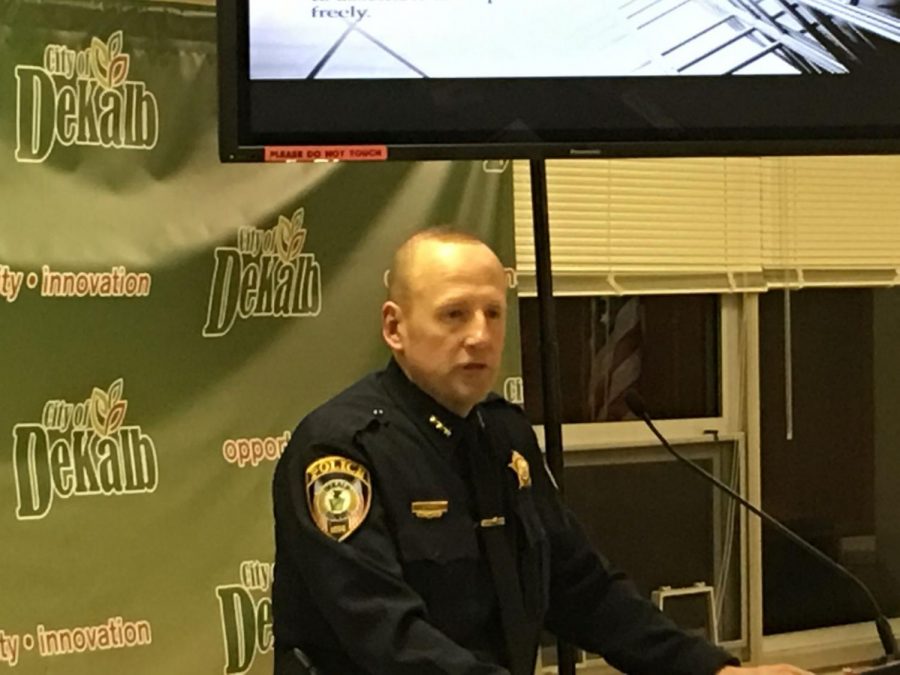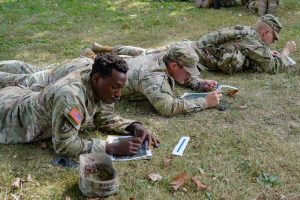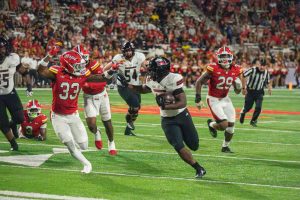Ordinance decision postponed to receive more local feedback
January 28, 2016
DeKalb’s unlawful assembly ordinance has moved to the Human Relations Commission for more public input after more than 15 people, including four NIU students and two NIU staff members, voiced their concerns at Monday’s City Council meeting.
The draft of the ordinance, which DeKalb Mayor John Rey pushed from Monday’s City Council agenda in an effort to gather more community input, declares it to be a violation of city code for a person to fail to obey a command of a sworn peace officer or fail to disperse after a reasonable effort is made to advise the participants that the assembly is unlawful and must disperse, according to the draft of the ordinance in Monday’s City Council agenda.
A total of 21 NIU students attended Monday’s meeting.
“This is something that we feel very strongly about which is why we came out in such strong attendance,” said Adewale Adetunji, president of the Black Student Union. “If you take a look around, the majority is students and I’m sure that isn’t the case at a typical council meeting.”
The first reading of the bill was passed unanimously at the Jan. 11 City Council meeting. NIU classes didn’t begin until Jan. 19.
“To have the first reading of this ordinance, that deals with the assemblies, without the vast majority of people who actually assemble… feels like a bit of a sneak attack,” said senior biology major Asim Muhammad.
History Associate Professor Rosemary Feurer said the ordinance reminds her of the Patriot Act, but commends DeKalb Police for their sensitivity in the matter.
Public input was initially meant to be postponed but was then heard after 6th ward Alderman Dave Baker said many NIU students and citizens had come to the meeting to have their concerns heard.
“I represent the students and the whole idea of trying to interpret the Constitution raises the hairs on the back of my neck and I want to hear from the public before we decide what we are going to do with this,” Baker said.
After hearing the public’s input, City Manager Anne Marie Gaura asked DeKalb Police Chief Gene Lowery to comment. Lowery presented a nine-slide presentation explaining the city’s rationale behind the creation of the ordinance.
“This had nothing to do with the tragic loss of an NIU student in the city of Chicago, it had something to do with some of the events we had here. We have had some situations, whether planned or not, went awry … .” Lowery said.
Lowery said the situations in DeKalb included an unsanctioned event where 600-800 people took over Greek Row in summer 2012 for three days, as well as the demonstration in December 2014 for the Black Lives Matter movement when a pregnant demonstrator was hit by a car.
If DeKalb does not have an ordinance in place then police will have to rely on state law, Lowery said.
Illinois statutes define mob action as the knowing or reckless use of force or violence disturbing the public peace by two or more persons acting together and without authority of law.
“Every university city of any size in this state has an ordinance of this nature,” Lowery said. “I think the biggest mistake was timing on our part. In some ways I think it could have been very easily offensive to people and I’ll take the hit for that and I apologize for that.”







